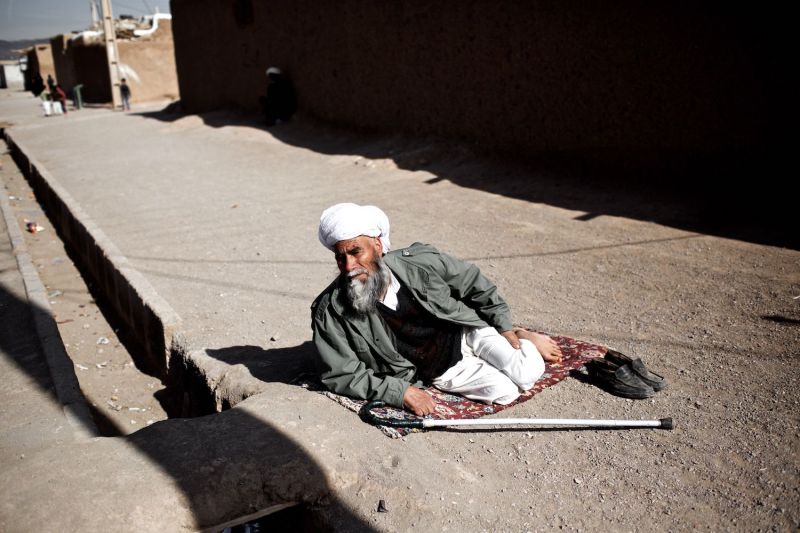It had been more than three decades since 48-year-old Zahra, who asked to be identified only by her first name, left Afghanistan with her husband to escape the increasing violence that would plague her country for many years to come. “I was married at 13 years, and soon after my husband and I moved to Iran seeking a better life for the family we wanted to start,” Zahra, now a widow of many years, told me this past December.
She was surrounded by her three children, aged between 12 and 17 years. Two days before we spoke, the family of four had been detained by the Iranian police. In a matter of hours, their lives were turned upside down. “We were on our way to Mashhad to attend a wedding when we were stopped. They arrested us. Our refugee cards were canceled. We didn’t get to defend ourselves. I begged them to not send us back, but they didn’t listen,” she narrated her ordeal as she sat on a hard bench at the edge of the large reception hall for refugees in Islam Qala, a town in Herat province, on Afghanistan’s western border.Trending Articles
The enormous structure, opened by the Norwegian Refugee Council in April 2019, supports an equally massive humanitarian operation sheltering hundreds of the thousand or so Afghan refugees who are sent back from Iran every day. They are dropped off at a spot known as “Zero Point”—a neutral location between the two countries—where several international organizations work alongside Afghan government agencies to help reintegrate them.
According to data from the International Organization for Migration, as of the first week of this past December, a total of 451,073 Afghans returned from Iran in 2019 alone. Of these, 254,343 were forced deportees. “We have three categories of returnees—documented voluntary returnees, undocumented voluntary returnees, and forced deportees.” The forced deportees are the most vulnerable cases, continues Mobeen Sofiya Qaderi, the manager of the reception center and an official at the Afghan Ministry of Refugees and Repatriation.
Qaderi is responsible for smooth coordination among the many international and Afghan agencies working at Zero Point. And lately, the hours have been long. “They start the deportations a little after noon daily,” he said of the Iranian police. “Once the Afghans get here, we first give them a hot meal, since many have spent days in detention, possibly facing hardship and mistreatment.” After that, he said, “we register them and try to better understand their needs, whether its health care, shelter, and even transportation to families or relatives around Afghanistan.”
According to Qaderi, women and children like Zahra and her family are worst affected by the deportations. “Of the forced deportees this year, 1,172 were women, and 140 were unaccompanied,” he said. “Another 1,752 were unaccompanied children, sometimes young girls 16 to 17 years of age, who report to us of being sexually abused by the authorities,” Qaderi added, recalling several cases of young girls separated from their families and forced to return to Afghanistan after spending days in detention.
Read full report on Foreign Policy
